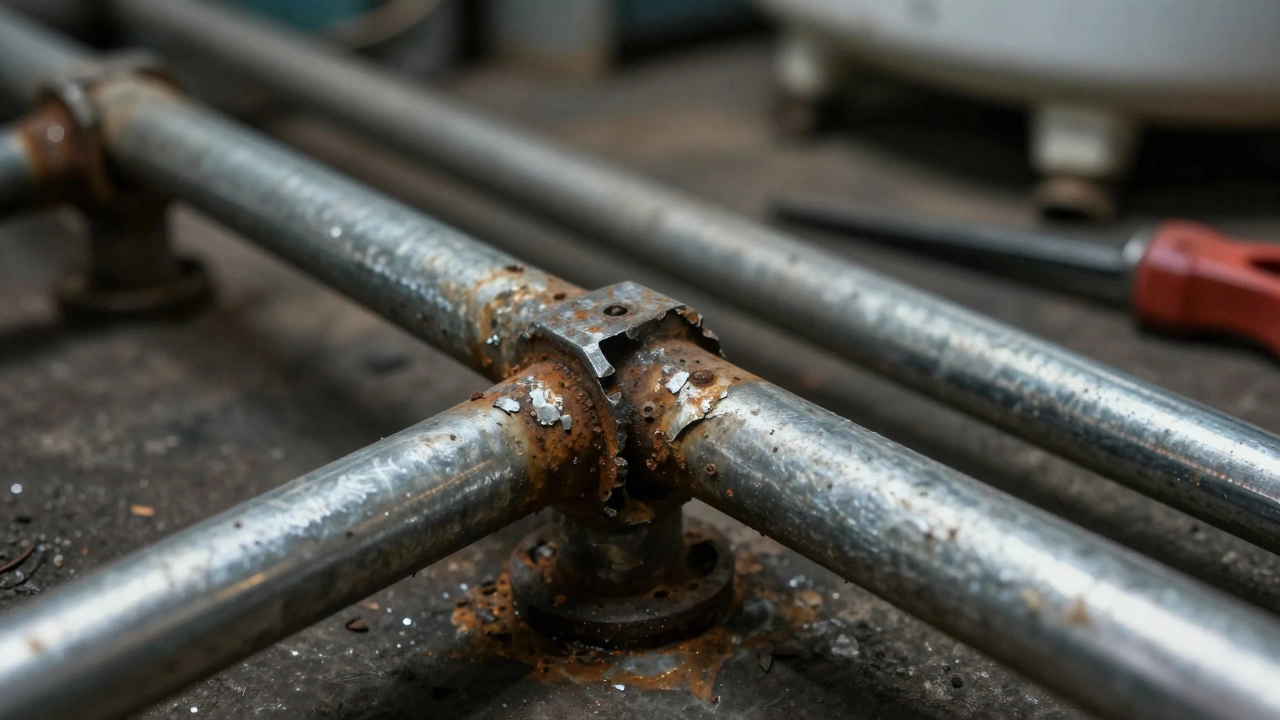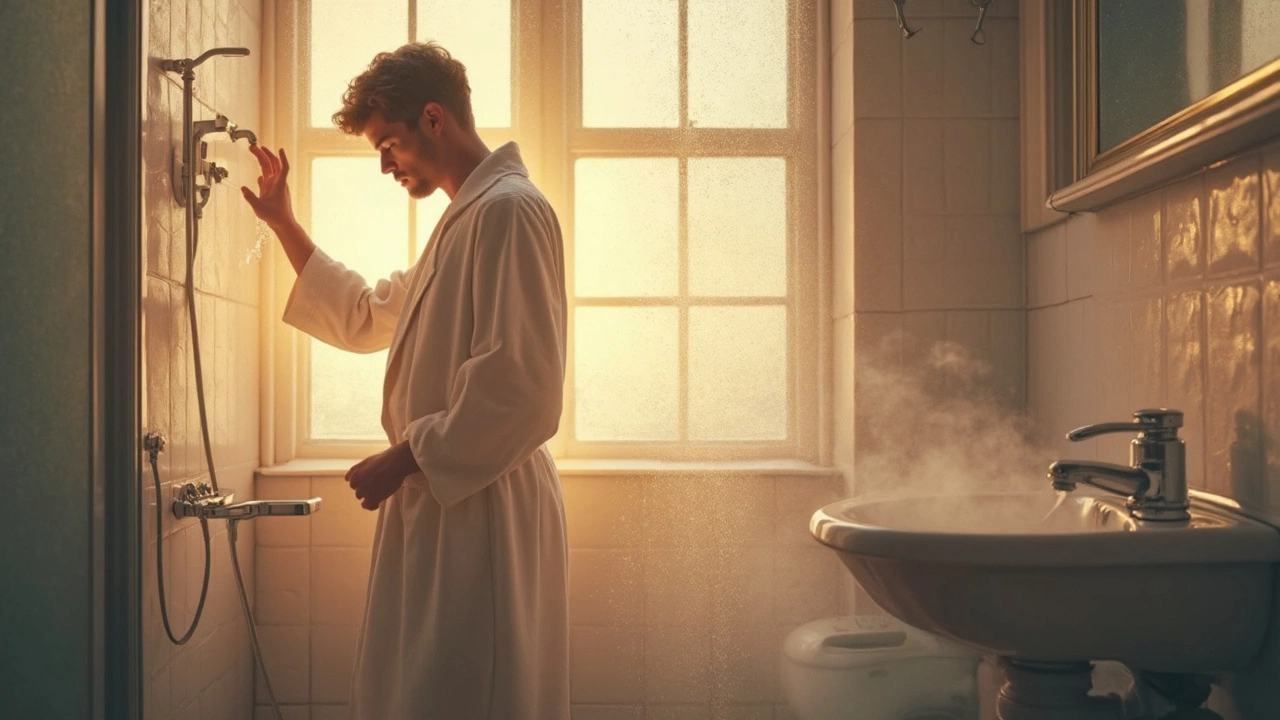Water Heater Reset: How to Tell If Yours Needs It
May 1 2025Water Heater Guide – Keep Your Hot Water Flowing Safely
If you’ve ever taken a cold shower because the water heater gave up, you know how frustrating it can be. The good news? Most problems are avoidable with a few simple habits. In this guide we’ll cover how long a water heater should last, when to flush or drain, how to reset safely, and the warning signs that it’s time for a professional fix.
How Long Does a Water Heater Usually Last?
On average, a gas or electric water heater will give you about 8‑12 years of reliable service. A well‑maintained unit can stretch toward the high end of that range, while neglect can cut its life in half. The biggest killers are sediment buildup, corrosion, and missed annual checks. If your heater is over ten years old and you’ve never had a service visit, schedule one now – a quick inspection can add years to its lifespan.
Flushing vs. Draining: Which Maintenance Trick Works Best?
Two words you’ll hear a lot: flush and drain. Both aim to remove mineral sediment that settles at the bottom of the tank. Flushing means you attach a garden hose to the drain valve, open it, and let water push the debris out while the tank refills. Draining goes a step further: you shut off power or gas, open the valve, and let the tank empty completely before refilling. Flushing is easier and can be done yearly; draining is best after a severe buildup or before replacing the unit.
Why does this matter? Sediment acts like an insulating blanket, forcing the heater to work harder and raising energy bills. Over time it can overheat the tank’s metal, leading to leaks or even a burst. A quick flush costs next to nothing and can keep your heater efficient for years.
Here’s a practical tip: after you flush, run a hot water tap for a minute to clear any remaining particles. Then check the temperature setting – 120°F (49°C) is usually enough for comfort and saves energy.
When you’re dealing with electric models, there’s an extra safety step: always turn off the breaker before you start any work. Some people wonder if they should flip the breaker when resetting the heater after a fault. The answer is yes – cutting power protects you and the appliance from spikes while you diagnose the issue.
If you’ve just reset a water heater and it’s still acting up, look for these red flags: strange noises (rumbling or popping), rusty water, or water that’s not as hot as before. These are classic signs that sediment or a failing heating element is to blame. In many cases, a professional can clean or replace the part, saving you from a full replacement.
But what if the heater is old and constantly tripping the breaker? It might be time to consider a replacement. Modern tanks are more efficient, and switching to a tank‑less system can free up space and cut energy use dramatically. Before you decide, compare the cost of a new unit (including installation) with the ongoing repair bills you’ve been paying.
Bottom line: regular maintenance – a yearly flush, checking the pressure relief valve, and keeping an eye on temperature settings – can add years to your water heater’s life. When in doubt, call a certified gas engineer. They have the tools to safely test the thermostat, inspect the anode rod, and ensure everything complies with local safety regulations.
So, next time you hear a hiss from your tank, don’t ignore it. A quick flush or a professional check could keep your showers warm and your bills low for many more months.
 25 Jan
25 Jan
How to Tell If Your Water Heater Anode Rod Is Bad
Learn how to spot a failing water heater anode rod before it causes leaks or tank failure. Signs include rotten egg smell, rusty water, and reduced hot water. Replace it yourself to save hundreds.
Read More... 13 Jun
13 Jun
Hot Water Only at the Sink? What Your Shower Is Really Telling You
If you’re getting hot water from your sink but only cold in the shower, something’s off—and it’s not always your water heater’s fault. This article breaks down the problem step by step so you can figure out exactly what’s going wrong. Learn common culprits and smart fixes you can try on your own before calling a plumber. From shower valves to hidden clogs, get the answers you need to get your mornings back on track. Simple troubleshooting makes all the difference—and it’s probably not as complicated as you think.
Read More... 1 May
1 May
Water Heater Reset: How to Tell If Yours Needs It
Waking up to a cold shower is a rude surprise and might mean your water heater needs a reset. Knowing the signs can help you fix the problem fast and avoid calling a repair tech. This article shows you what to check, why a heater might trip, and how to reset it safely. We’ll cover common symptoms, practical steps, and some pro tips for keeping your heater running smoothly. You might save yourself some money and hassle.
Read More... 14 Feb
14 Feb
Why Your Hot Water Might Be Taking a Break
Having trouble with your hot water? There could be several reasons behind the problem, ranging from a simple pilot light issue to a more complex thermostat malfunction. This article digs into the common culprits and offers practical tips to troubleshoot and get your water heater back up and running. Following some straightforward steps can save you time and possibly money. No more cold showers; let's tackle this hot water hiccup together.
Read More...



